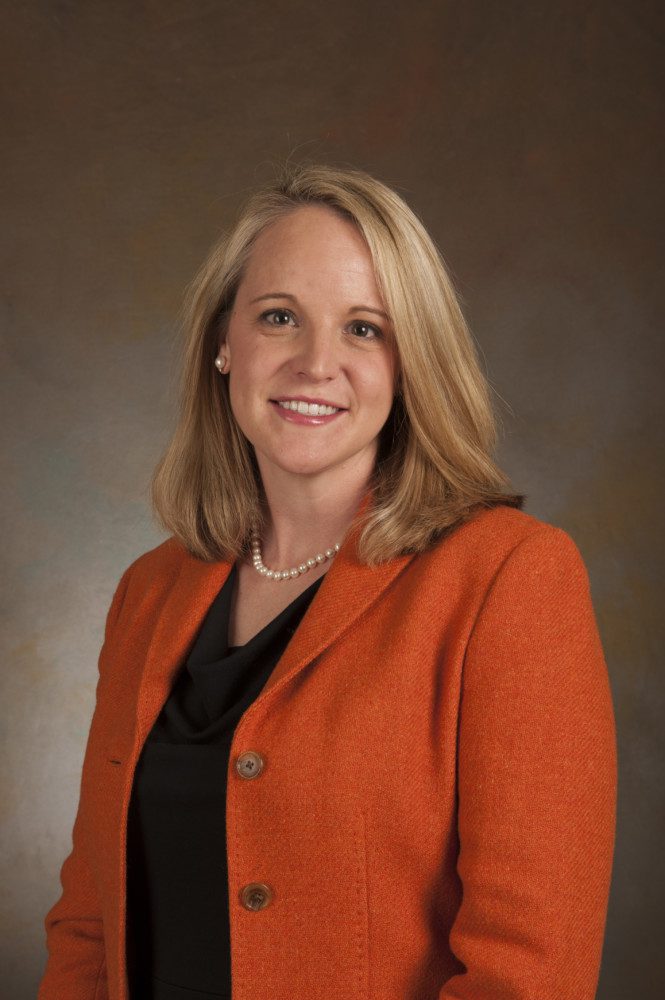The Clemson University College of Education has developed a new undergraduate degree program that is the first of its kind to blend aspects of learning sciences, systems improvement sciences and human resource development.
Students pursuing a Bachelor of Science in Human Capital Education and Development (HCED) will learn to design effective training, manage organizational change and develop career programs for organizations and communities.
According to Kris Frady, assistant professor in the College of Education, the program distinguishes itself from others in the College, and not only because its focus is shifted away from traditional teacher preparation. She said the interdisciplinary instruction focused on organizational learning and assessment prepares students for diverse occupational settings across a variety of industries.
“This program combines many of the strengths found in the College’s graduate programs – leadership development, systems improvement science, learning sciences, human resource development – and puts them into an undergraduate package,” Frady said. “It is built to be flexible and adaptable so that graduates emerging with this degree can apply it to a variety of workplaces and fields.”

Frady envisions graduates from this program as human resource development professionals in a manufacturing industry who can develop employees because they “speak the same language” as those workers on the production floor. She sees future organizational improvement specialists in a health care system who are highly effective because they have gained a specialized understanding of how a hospital works.
“These are only two of the many examples of the types of graduates the program will produce,” Frady said. “They will bring actual solutions to workplace problems along with the theory that informs those solutions.”
The program is geared toward students in a variety of positions along the higher education pipeline. Students can enter as freshmen to pursue the degree, and it is an attractive option for change-of-major students looking to retain general education and elective credits but pursue a different degree.
However, Frady said she expects the primary pathway for the program will be for transfer students from other universities or technical colleges. This method of entry to the program makes the program flexible and cost effective for the student while making a Clemson degree more accessible to those in more rural or remote areas of the state.
According to Frady, the program was designed as a hybrid in-person/online program in order to appeal to students across South Carolina and out of the state. The last half of the program – roughly 60 hours depending on credits earned before starting the program – will be delivered primarily online along with a residency requirement to attend face-to-face seminars during each of the student’s final four semesters.
“We essentially designed the program backwards in order to make most of the program’s core courses deliverable online,” Frady said. “We feel that it is important to appeal to those students who live in what are referred to as ‘education deserts,’ which are areas where bachelor’s degree program opportunities are scarce or largely unavailable. These areas also often represent the poorest and most racially minoritized communities.”
Making the program approachable and accessible for the widest possible audience is half the battle; making it relevant and attractive to the many industries to which it will apply is the other half. Part of this is done directly through the curriculum; prior to beginning core and specialized courses, students complete a 15-hour interdisciplinary support area aligned with a fast-growing technical sector such as business, human services, health care, information technology or advanced manufacturing and STEM.
The design of the curriculum didn’t occur in a bubble, according to Frady. Faculty behind the program consulted multiple industry partners and consultants within and outside of the College to ensure the curriculum would produce employable graduates who would be attractive to a wide variety of industries.
Frady said that studies clearly showed that a large percentage of companies are currently seeking and expect to need more employees with a knowledge of the HCED concepts and specialization areas that the degree provides. College faculty worked with 14 different companies representing a variety of fields, and all reported a need and interest in employing the instructional coordinators, management analysts and training and development managers that the HCED program will churn out.
In feedback solicited from the advanced manufacturing sector, leaders in the field said they saw the value in the degree because it would provide employees with specialized knowledge in their industry who are also formally trained in human resources concepts. Feedback from the information technology sector indicated that the degree aligns with their move toward applicants with more technical skills combined with a general base of knowledge.

According to George J. Petersen, founding dean of the College of Education, College leadership sees this new degree program as an exciting new avenue in its continuing mission to transform education in South Carolina. He said the program will serve as a hub connecting education to communities, workforce development and economic prosperity while expanding equity, access and opportunity for all South Carolinians.
“The human capital education and development program is another in a long line of innovative, best-in-class programs that our College is proud to offer for the good of all people across South Carolina,” Petersen said. “The work our College does has always aligned closely with the University’s land-grant mission, and this program will equip students to make an impact in multiple industries that are vital to the lives and well-being of communities across the state.”
For more information on this degree program, contact humancapital@clemson.edu.







